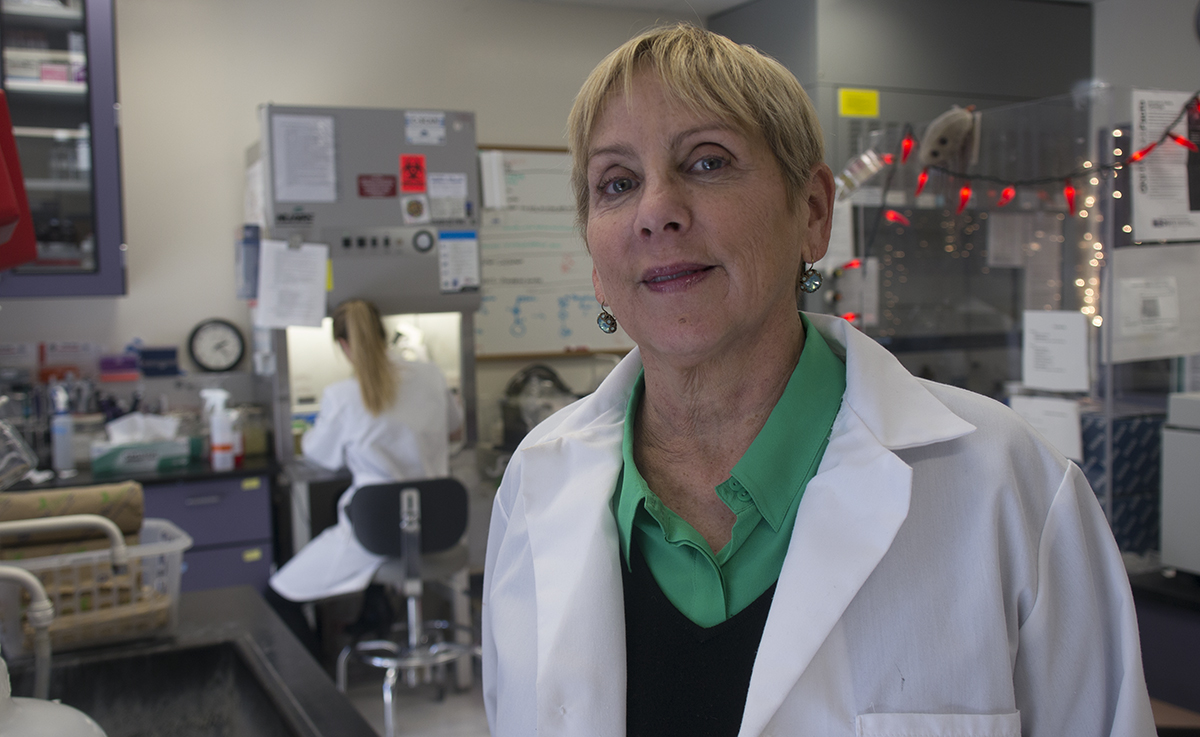
Infection Prevention
UNM Researchers Search for a Vaccine to Prevent and Treat Chronic Hepatitis C Infection
Hepatitis C virus (HCV) infection is a blood-borne liver disease that kills around 400,000 people a year – and millions more around the world are chronically infected.
While effective treatments that clear HCV infection have been introduced in recent years, scientists dream of creating an easy-to-administer vaccine to interrupt transmission of the infection and prevent people from becoming ill in the first place.
 In a report published this week in The New England Journal of Medicine, Kimberly Page, PhD, MPH, a professor in the UNM Department of Internal Medicine, joined colleagues from throughout the U.S. and Italy in testing a potential HCV vaccine on individuals at high risk of becoming infected.
In a report published this week in The New England Journal of Medicine, Kimberly Page, PhD, MPH, a professor in the UNM Department of Internal Medicine, joined colleagues from throughout the U.S. and Italy in testing a potential HCV vaccine on individuals at high risk of becoming infected.
Over the course of six years, the researchers recruited 548 study uninfected participants – all of whom had a history of injecting drugs – in New Mexico, San Francisco and Baltimore, half of whom received the vaccine, and half of whom received a placebo.
“We were testing to see if we could stop the disease,” Page said. “There are people who spontaneously clear the infection, and when they get reinfected, they tend to clear it again and again. There was hope this would do that.”
The study found that vaccine recipients produced HCV-specific T cells (a type of disease-fighting white blood cell) and lowered peak HSV RNA levels in the body. But the vaccine did not prevent chronic infection from taking hold, as comparable numbers in both arms of the study tested positive for the virus. The researchers speculated that the vaccine design might not have accounted for immune responses unique to people who inject drugs.
“We saw that the vaccine had an effect, but it didn’t have the effect of clearing the virus, “ Page says. The good news is that recipients suffered no adverse side effects from the vaccine, which used a recombinant chimpanzee adenovirus as a vector to deliver selected HCV proteins in hopes of stimulating an immune response.
“There’s a lot of very good safety data here for the adenovirus vectors, which are being used in other vaccines, and that’s quite relevant right now with COVID,” Page says.
Research on IV drug users poses unique challenges, Page says. Each of the participants was followed for up to 26 months, and each received risk reduction counseling and referral to substance abuse treatment programs. Those who developed infections were referred for further medical care.
About one-quarter of people with HCV spontaneously clear the infection, but those with untreated chronic infections may experience cirrhosis, liver cancer or liver failure. The number of new cases has been on the uptick in the U.S. over the past decade due to an increase in the number of people injecting opioid drugs.
A new generation of medications introduced starting in 2014 provide very high cure rates, but expense and access to treatment remain an issue, underscoring the ongoing need for an effective vaccine.
Although the study results were disappointing, they provide valuable data for future research, Page says. “Now we’ll look for the next generation of vaccines.”